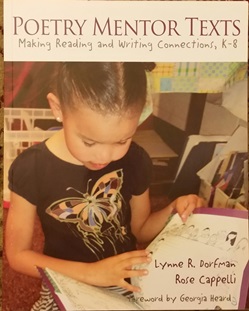~W.H. Auden
It is sometimes hard to define something, even when we feel we know it fairly well. Emily Dickinson, once confided in a letter, "If I feel physically as if the top of my head were taken off, I know that is poetry." We might offer these ideas: Poetry is a story, the painting of a scene, a thought, a small moment in time. The trouble is that most dictionary definitions of poetry are dry, limiting, and vague; and so we are left scratching our heads. What, then, is this magical writing that has such power and range, capable of ever-renewing our spirits?
Like other forms of literature, poetry may tell a story, convey ideas, or offer vivid, unique description – sometimes, all within the organization of a single poem. Sometimes, poems express our spiritual or emotional states. Regardless of purpose, poetry makes every word count: their sounds, textures, patterns, and meanings create a verbal kind of music. When we hear a poem, we may recognize certain patterns with effective repetition or a series of rhymes. We hear a beat. We want to read the words aloud.
I offer a rationale for using poetry across the day. Poetry easily finds a home in all areas of the curriculum. Feed your students and your own children and grandchildren with wonderful poems. Encourage them to write poetry as a response to reading, in their writer’s notebook, and for simple enjoyment. You will find that your students will begin to see things in new ways and learn how to find the extraordinary in ordinary things! Here is a list of why we should offer poetry to our children every day:
- Children love the sound of language.
- Poetry is a genre that has been a part of children’s lives since birth.
- It can help us see differently, understand ourselves and others, and validate our human spirit and ability to empathize.
- It is the great equalizer – a genre especially suited to the struggling or unmotivated reader/writer.
- Poetry enhances thinking skills and promotes personal connections.
- Reading poems aloud captures the ear, imagination, and souls of the listeners.
- The playfulness of language and the ability of words to hold us captive with their intensity, beauty, and genius are particularly apparent in poetry.
- Poetry helps to broaden children’s experiences.
- Poetry can be the voice to claim and name the events we live through.
- Poetry validates our feelings and helps us make sense of the events of our lives.
- It gives us ways to gain new insights on old problems.
- Poetry grants us a place of beauty.
- Carefully selected poetry has the power to engage readers’ minds, and to elicit sensory reactions, passions, and intense emotions.


 RSS Feed
RSS Feed
